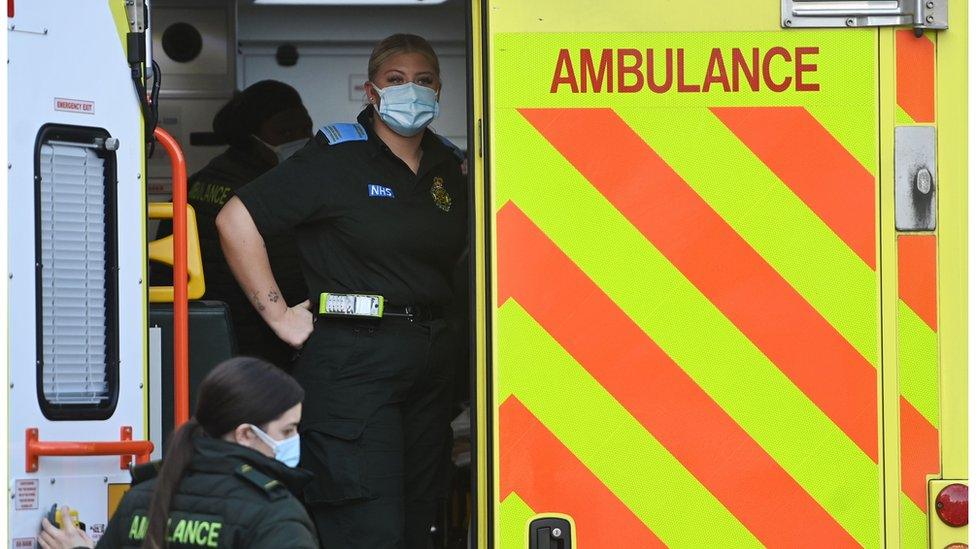North East Ambulance strike: Only 'acute' emergencies covered
- Published
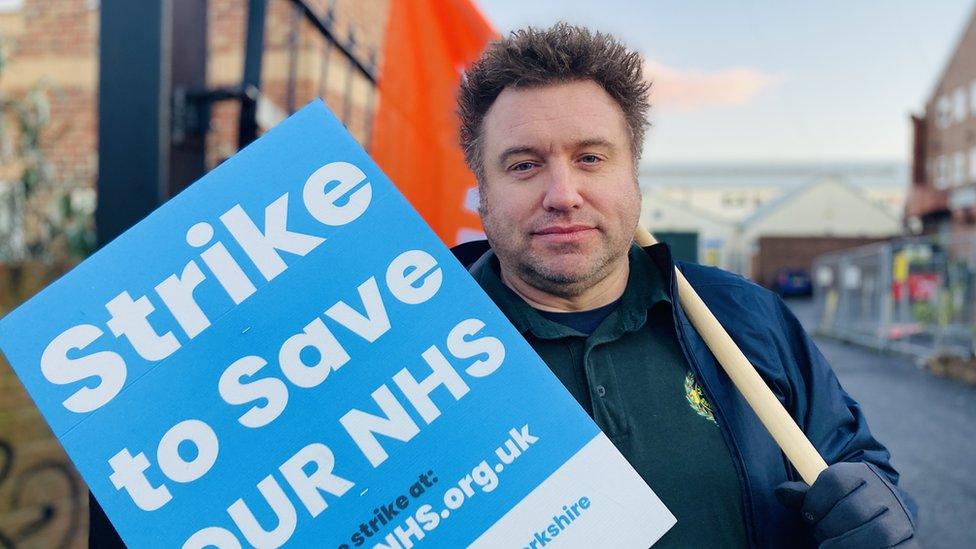
GMB representative Jamie Frend said being on strike felt "alien"
North East ambulances will only respond to the most severely ill patients having "an acute episode" during strike action, a senior manager has warned.
North East Ambulance Service (NEAS) chief operating officer Stephen Segasby said Wednesday's walk-out over pay would bring "significant pressures".
Staff are striking after talks between the government and unions failed.
On Tuesday, NEAS declared a critical incident due to "unprecedented pressure" in its response to patients.
"The strike action is a difficult position for all our staff, they are taking action which will put us under increased pressure and that is a regrettable decision," Mr Segasby said.
"I think our paramedics, our professionals, call handlers - every part of our service and all the staff - have always acted professionally under the utmost pressure for two to three years and will continue to do so.
"Taking the decision to strike is one they have not taken lightly."
Patients are advised to only call 999 in an emergency and to use 111 online, external, a local GP or a pharmacy.
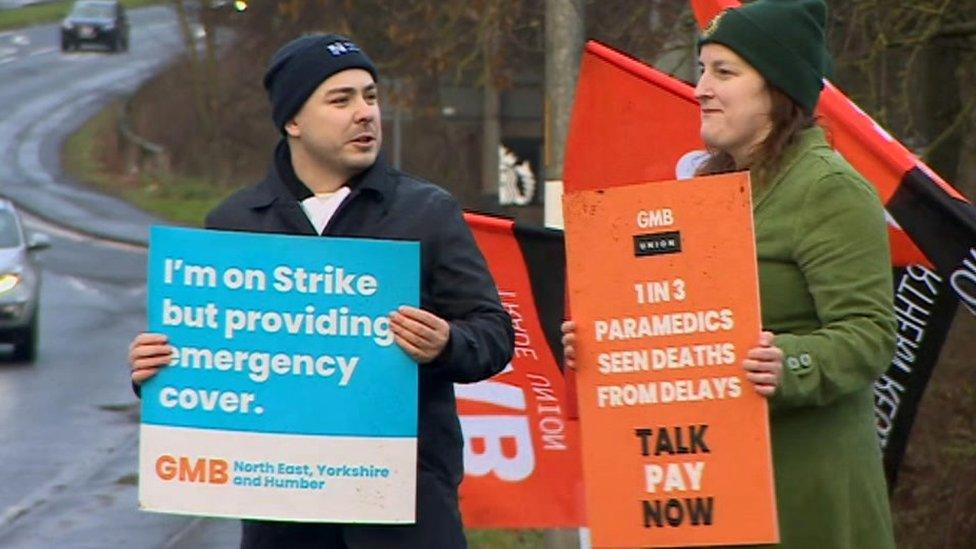
NEAS staff on a picket line in Rotary Way, Hexham
Members of the three main ambulance unions - Unison, GMB and Unite - are striking over pay.
GMB regional organiser Stuart Gilhespy said the government's offer of 4% was "way below" the cost of living.
"The ambulance crews deserve and need a better pay rise," he said.
"It's also about the conditions, about the length of time they're sitting outside hospitals.
"Up to 26 hours, we've had an incidence of, where an ambulance crew was waiting to hand over the patient to a hospital."
Discussions have been held with union members who will provide cover from the picket line for the most severe "life-threatening situations".

Analysis:
Sharon Barbour, health correspondent, BBC Look North
The GMB union staged a small early picket at the Newcastle Central Ambulance station.
Here paramedic Jamie told us the morale among his colleagues was "sombre". He didn't want to be there and said for paramedics not to respond to all calls was a difficult decision.
But he said the pressures were too much, and many of his colleagues deserved much better pay for the work they did.
He stressed they would respond to Category 1 calls - where there was an imminent risk to life - and you can't help but think every blue light ambulance is racing to save a life today.
Unison members formed picket lines from midday, and at the one at Gateshead's ambulance station there were 999 calls where a life was in danger, and paramedics rushed to their ambulances to attend to those medical emergencies.
Around the corner was Gateshead's QE hospital. We know the military are driving some patient vehicles to hospitals, and others, such as heavily-pregnant mums, have been advised to have a plan to get themselves to hospital.
The stakes are very high and there is growing anger on all sides - but as the sun sets one thing must unite them; the hope that everyone survives this strike, and that somehow there'll be an agreement to avoid another one.

Mr Segasby explained ambulances would be prioritised for those requiring the most urgent care including people with severe chest pains, the symptoms of a heart attack or stroke.
"That's a very difficult thing for people to understand and I would advise anybody who is not sure to dial 999 and we will help make that decision, but if it's deemed not urgent it's highly likely we will not be able to send an ambulance," he said.
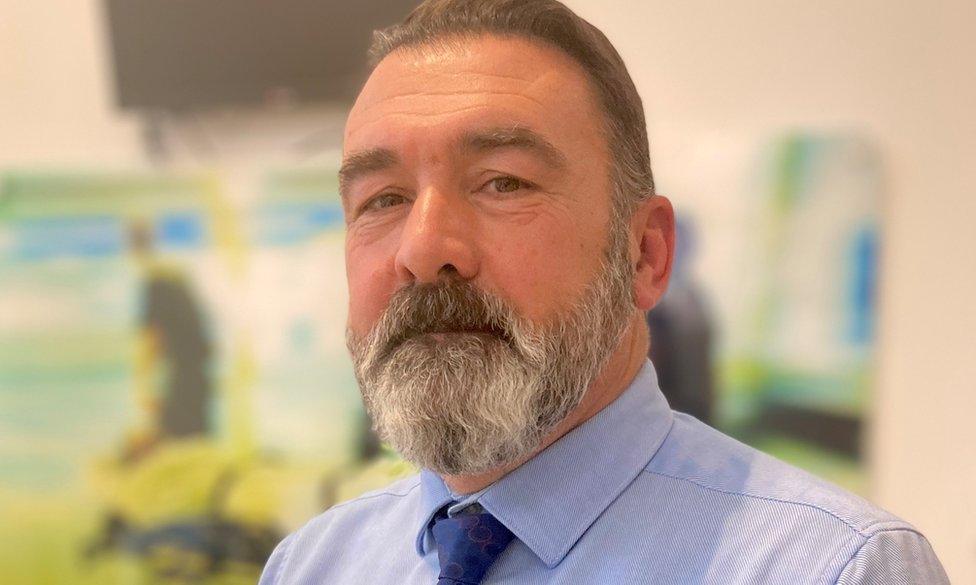
Stephen Segasby said steps had been taken to ensure additional support was in place
Hexham GMB representative Jamie Frend said he did "a lot of soul-searching" before he decided to strike as it was "alien" to him.
"I didn't join the job to not look after people," he said.
"This isn't somewhere I want to be, this isn't what I want to do but, for the last 10 years, we've asked to be listened to by the government and the doors have been closed on us."
Allow X content?
This article contains content provided by X. We ask for your permission before anything is loaded, as they may be using cookies and other technologies. You may want to read X’s cookie policy, external and privacy policy, external before accepting. To view this content choose ‘accept and continue’.
Crews would respond to the most serious calls if a life was at risk and then return to the picket lines, he said.
Military personnel will help NEAS with non-urgent work and have been trained to drive ambulances.
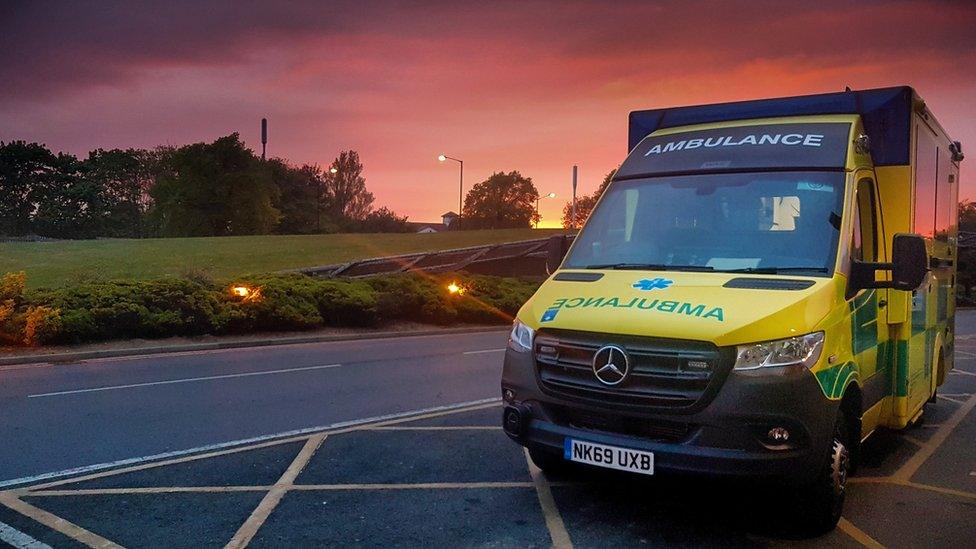
NEAS had already declared a critical incident due to "unprecedented pressures" on Tuesday
They will help with driving the Patient Transport Service to get people to hospital for dialysis and cancer treatments, as well as helping to bring people home from hospital when they have been discharged.
NEAS managers will also be out clinically responding and non-clinical staff are being brought in to support the welfare of crews and to help speed up turn-around times at hospitals.

Follow BBC North East & Cumbria on Twitter, external, Facebook, external and Instagram, external. Send your story ideas to northeastandcumbria@bbc.co.uk, external.
Related topics
- Published21 December 2022

- Published20 December 2022
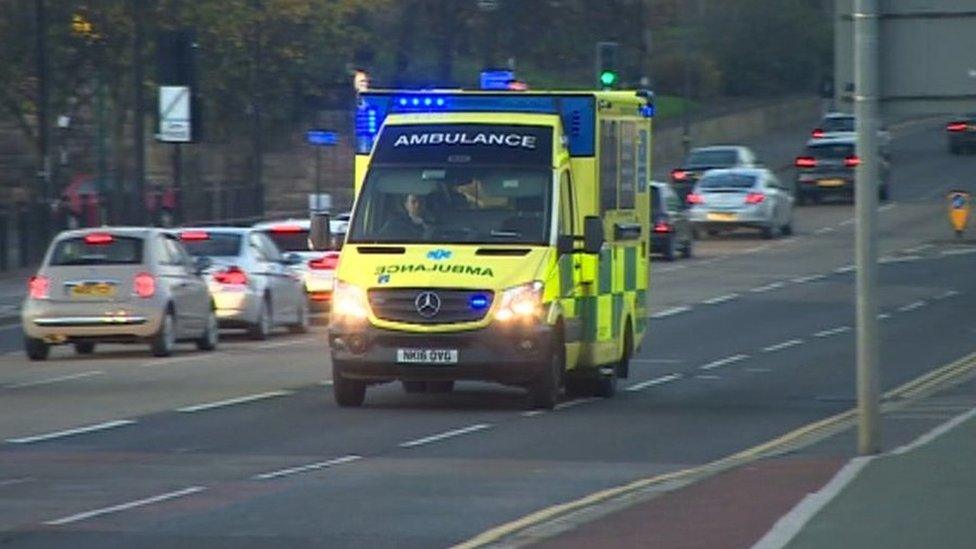
- Published10 January 2023
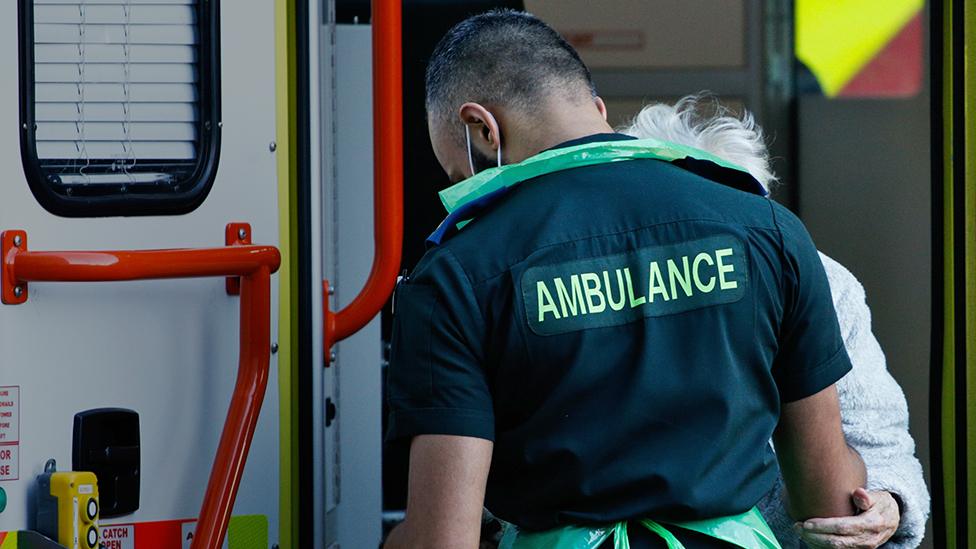
- Published2 May 2023
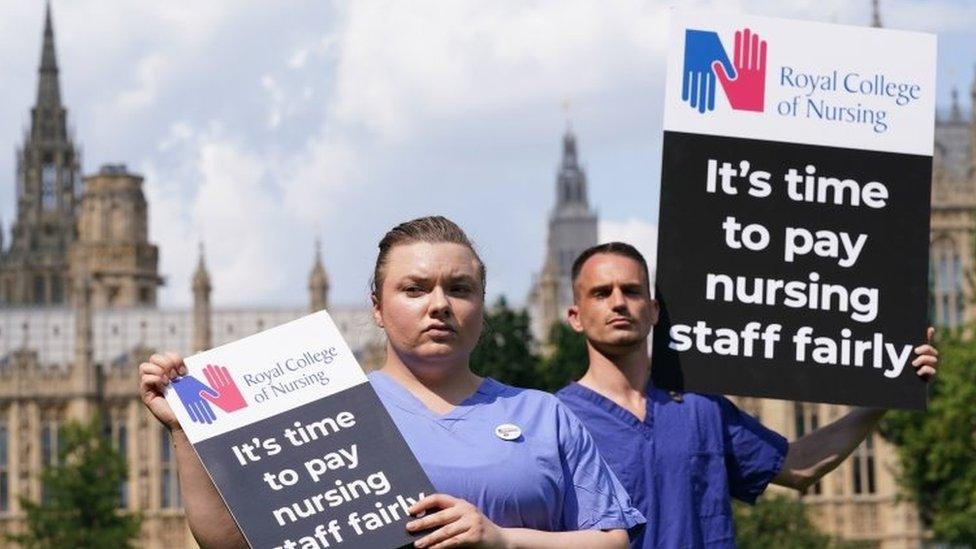
- Published19 December 2022
